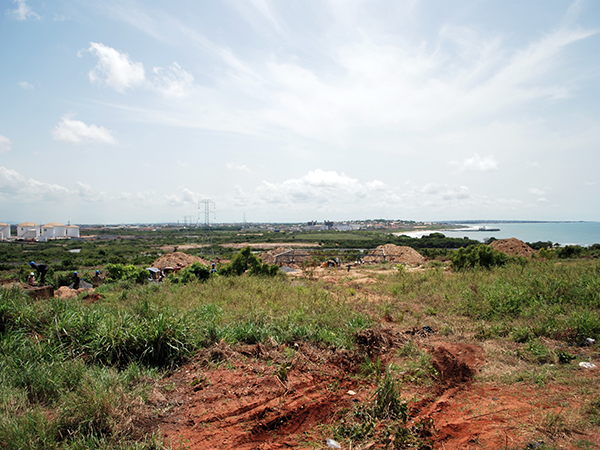
Tema Liquefied Natural Gas Project
Client
Quantum Power Ghana Gas LimitedLocation
Tema, GhanaHighlights
- Floating Storage and Regasification Unit (FSRU): The FSRU will berth approximately 12 km off the Tema coastline. It will have an overall length of 295 m and store approximately 170,000 m3 of LNG.
- Offshore Mooring and LNG Supply Vessels: The FSRU will be spread-moored and the LNG carrier will moor alongside for the LNG transfer via ship-to-ship transfer.
- Subsea Gas Pipeline: This will be laid on the seafloor in order to transport the gas from the FSRU to the metering station.
- Landing Facilities and Distribution Pipeline: The gas will be distributed using underground pipeline located within existing right-of-way servitude.
- Ancillary infrastructure.

Project Overview
Quantum Power Ghana Gas Limited (QPGGL) is developing the Tema Liquefied Natural Gas (LNG) Project, which will include the necessary infrastructure to import, store, regasify, and deliver regasified LNG to off-takers in the Greater Accra Area for an initial period of 10 years. The project is designed to encompass a floating storage and regasification unit (FSRU) permanently moored offshore, which will receive LNG, regasify it, and then export it via a 16” riser, pipeline end manifold (PLEM), and 24” pipeline to an onshore metering and distribution terminal. The onshore reception/metering facilities are designed for the reception of gas from the FSRU via the subsea pipelines. Gas from the metering station will then be routed into a distribution manifold and transported via dedicated pipelines to the end users.
Project Role
QPGGL appointed Knight Piésold as the independent environmental assessment practitioner to undertake a full environmental and social impact assessment (ESIA) for the project (both offshore and onshore components).
Knight Piésold was mandated to facilitate the project’s environmental authorization process in line with all relevant local and international legislative requirements. These included the International Finance Corporation standards and the African Development Bank standards.
The project has evolved through various stages. The key stages for the entire ESIA studies include:
- Scoping and Preliminary Alternatives Assessment Phase: Scoping report including the Terms of Reference for the ESIA was submitted to the Ghanaian Environmental Protection Agency for approval.
- Stakeholder Engagement: Consultations were held with different levels of stakeholder groups (i.e. local, regional and district, and national) across various sectors.
- Baseline Data Collection: Various specialist studies undertaken during the project assessment phase. These included:
- Marine Environment: Oceanography, marine water quality, benthic, planktonic, estuaries and lagoons, fish and fisheries, marine mammals and reptiles, offshore air quality and noise assessment.
- Terrestrial Environment: Hydrology, aquatic ecology, flora and fauna, traffic, air quality and noise assessment.
- Socio-economic Environment: Governance and administration, demographic profile, social infrastructure, education, cultural heritage, livelihoods and socio-economics, human rights and vulnerability.
- Project description and interaction with design and decision-making: A detailed project description was developed and project alternatives were evaluated in line with the requisite regulations.
- Assessment of impacts and identification of mitigation measures.
- Integrated management system and plans.
- Reporting and disclosure.